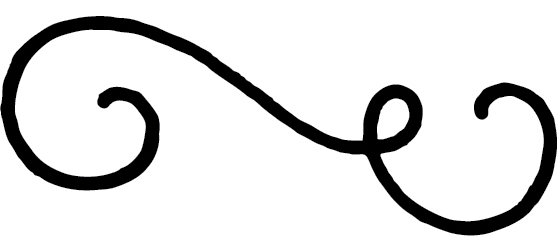Anthony Tommasini - The Indispensables: A Critic’s Personal Guide to Classical Composers
Here you can read online Anthony Tommasini - The Indispensables: A Critic’s Personal Guide to Classical Composers full text of the book (entire story) in english for free. Download pdf and epub, get meaning, cover and reviews about this ebook. year: 2018, publisher: Penguin Press, genre: Non-fiction. Description of the work, (preface) as well as reviews are available. Best literature library LitArk.com created for fans of good reading and offers a wide selection of genres:
Romance novel
Science fiction
Adventure
Detective
Science
History
Home and family
Prose
Art
Politics
Computer
Non-fiction
Religion
Business
Children
Humor
Choose a favorite category and find really read worthwhile books. Enjoy immersion in the world of imagination, feel the emotions of the characters or learn something new for yourself, make an fascinating discovery.
- Book:The Indispensables: A Critic’s Personal Guide to Classical Composers
- Author:
- Publisher:Penguin Press
- Genre:
- Year:2018
- Rating:5 / 5
- Favourites:Add to favourites
- Your mark:
The Indispensables: A Critic’s Personal Guide to Classical Composers: summary, description and annotation
We offer to read an annotation, description, summary or preface (depends on what the author of the book "The Indispensables: A Critic’s Personal Guide to Classical Composers" wrote himself). If you haven't found the necessary information about the book — write in the comments, we will try to find it.
In 2011, Chief Classical Music Critic of the New York Times Anthony Tommasini wrote a wildly popular series in which he somewhat cheekily engaged his readers to determine the ten all-time greatest composers. With his readers, Tommasini wrestled with questions of criteria. What made the greatest the greatest? Would a composers popularity factor in? Should influence matter? What about someone whose range was narrow? And what do you do with opera? Readers went nuts. Commenters were inspired to make their own lists. Some railed against the elitism inherent to classical music, but then they raged when Mahler was left off the final list. Tommasini had hit a nerve, but hed only just begun. Now in THE INDISPENSABLES, he makes the case for his own canon of composers--and what greatness really means in classical music.
Classical music lovers have always cared about greatness; but what does it mean to be canonical now? Who gets to say? And do we have enough perspective on the 20th century to even begin assessing it? This book is Tommasinis argument for the composers he finds indispensable and why.
To make his case, Tommasini draws on elements of biography, the anxiety of influence, the composers relationships with colleagues, and shifting attitudes toward a composers work over time. Because he has spent his life contemplating these titans, Tommasini also shares impressions from performances he has heard or given or moments when his own biography proves revealing.
As he argues for his particular pantheon of indispensable composers, Anthony Tommasini provides a masterclass in what to listen for and how to understand what music does to us.
Classical music lovers have always cared about greatness; but what does it mean to be canonical now? Who gets to say? And do we have enough perspective on the 20th century to even begin assessing it?
THE INDISPENSABLES is Tommasinis argument for the composers he finds essential and why. To make his case, he draws on elements of biography, historical background, the anxiety of influence, the composers relationships with colleagues, and shifting attitudes toward a composers work over time.
As he argues for his particular pantheon, Tommasini also provides a masterclass in what to listen for and how to understand what music does to us. If Alex Ross THE REST IS NOISE used music to tell a history, Tommasini here is using history to explain music.
Anthony Tommasini: author's other books
Who wrote The Indispensables: A Critic’s Personal Guide to Classical Composers? Find out the surname, the name of the author of the book and a list of all author's works by series.

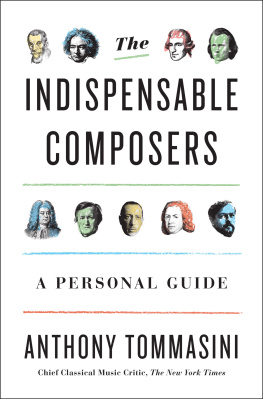


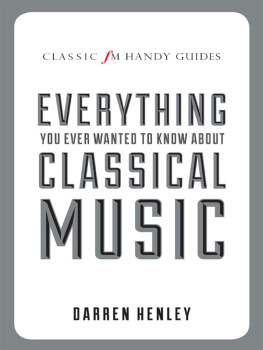
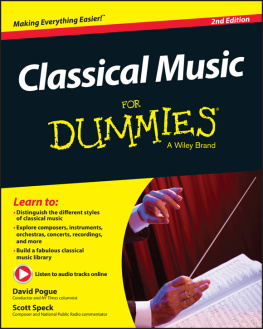
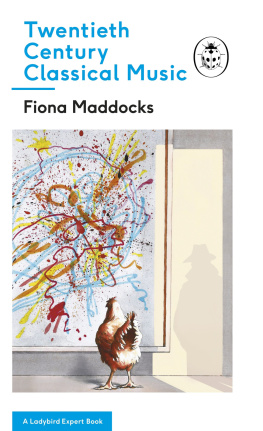
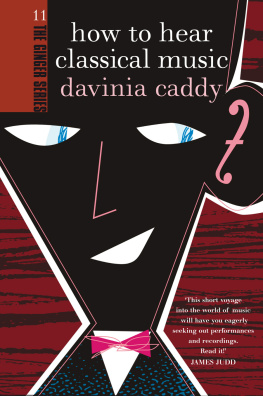
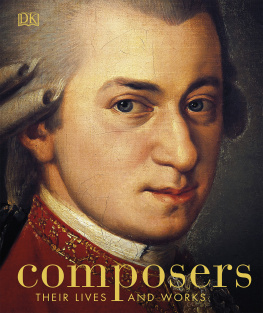
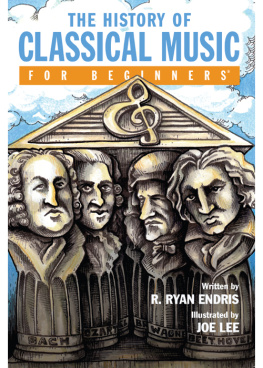
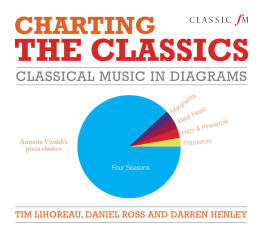
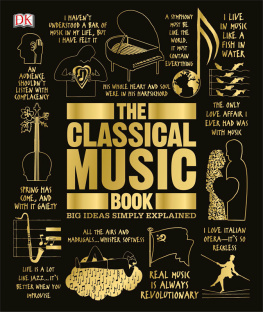
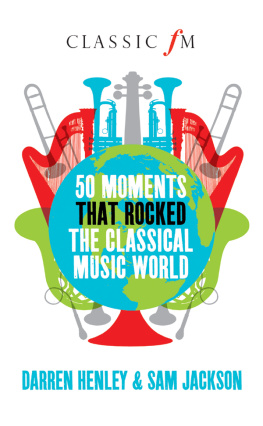


 CONTENTS
CONTENTS 